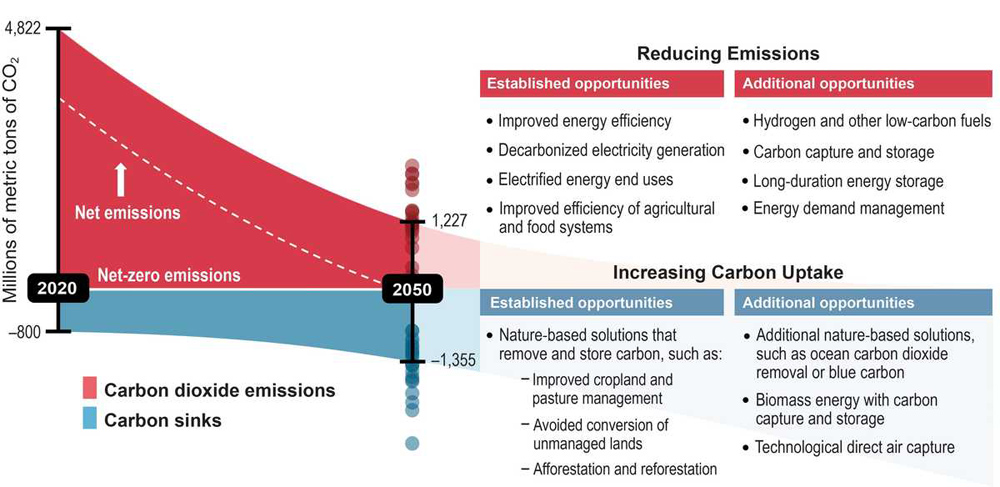New Jersey’s mass transit agency, NJ Transit, will spend $3.8 million on 19 electric vans, and the Board of Public Utilities (BPU) is offering grants of up to $5 million to entice colleges to launch decarbonization programs as the state seeks to push deeper emission reductions.
The transit agency’s purchase, which the board approved on Nov. 8, is part of its slow but steady foray into electrification. The vans will be used to help seniors and disabled residents and an on-demand shuttle service that will link Route 9, a main artery through Central Jersey, to residential areas.
The BPU’s campus initiative, which the agency opened on Nov. 1, creates a pilot program to reimburse colleges, universities and higher education institutions for up to 100% of the cost of putting together a plan to cut carbon emissions through energy efficiency, electrification, EV chargers and storage, among other methods.
To be eligible, institutions must have multiple buildings and produce a plan that covers the entire campus. The program also offers $1,000/ton of carbon dioxide equivalent reduced.
“Unlike traditional energy-efficiency programs, the decarbonization pilot is designed to explicitly target [greenhouse gas] emissions reductions,” the program participation guidelines said.
Together, the initiatives address two of the state’s largest sources of emissions: transportation and buildings. The program is “designed to encourage colleges, universities and educational institutions to support New Jersey’s clean energy future by taking actionable steps toward decarbonization,” the BPU said in announcing the pilot.
“We all have a role in protecting the environment and reducing carbon emissions,” the BPU said. “This program assists educational institutions in achieving their decarbonization goals.”
Sustainability Goals
NJ Transit President Kevin Corbett said the purchase of EVs and their integration into the mass transit system will be critical to modernizing the agency.
“This purchase not only helps our local communities transition to electric vehicles to support the state’s sustainability goals, but it also advances our mission to provide accessible transportation for all New Jerseyans,” he said.
The agency will use eight of the vans to provide community services in Essex, Middlesex and Somerset counties so that it can offer transportation for populations including seniors, people with disabilities, veterans, job seekers and rural residents. “This type of service can potentially serve residential customers at lower cost, with more operational and customer flexibility than is provided by limited, fixed-route “branch” services,” NJ Transit said in a release.
Another eight vans will be used for an on-demand shuttle service that will “test the feasibility” of creating an on-demand microtransit shuttle to connect mainline commuter bus corridors to lower-demand residential areas, the release said.
The state’s 2019 Energy Master Plan included directives for NJ Transit to implement an electric bus program and introduce a battery-electric train prototype by 2025. The state’s Global Warming Response Act (GWRA) report, which outlined legislative and policy initiatives to confront global warming, called for 10% of NJ Transit’s new buses to be zero-emission by Dec. 31, 2024, and all new bus purchases to be zero-emission by 2032.
But a second vote at the NJ Transit board of directors’ monthly meeting last week highlighted the difficulty of electrifying an agency that operates 263 bus routes, three light rail lines and 12 commuter rail lines. NJ Transit calls itself the “nation’s largest statewide public transportation system.”
Before the board backed the purchase of the 19 electric vans, it approved the purchase of 550, 40-foot diesel buses and 200, 60-foot diesel buses for a cost of $686 million. The buses will replace vehicles in the agency’s existing fleet, which has more than 1,300 buses, many of which are “over age and due for replacement,” according to the board’s purchase resolution.
The resolution said NJ Transit expects the purchase of the new buses will be the “last diesel bus procurement contingent on the successful advancement of the bus modernization program to completely convert to a zero-emission bus fleet.” The new buses, although they are not fueled by clean energy, will be fitted with “the latest technology to significantly reduce vehicle exhaust emissions,” the resolution says.
The purchase approval comes just over a year after the agency put into service its first electric bus. The bus is part of a pilot program that will put eight electric buses costing $9.5 million into service from the Newton Avenue Bus Garage in Camden. The agency converted the South Jersey garage to handle electric buses at a cost of $9.5 million. (See NJ Transit Advances with EV Bus, Sustainability Plans.)
The agency in October approved additional design work for the conversion of the Hilton Garage in Maplewood. The agency also is assessing the condition of two other garages in Westwood and Newark for possible conversion to handle EVs.
